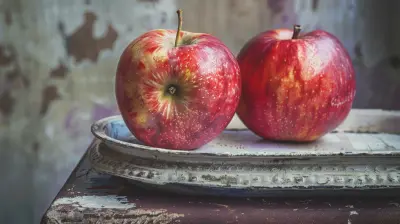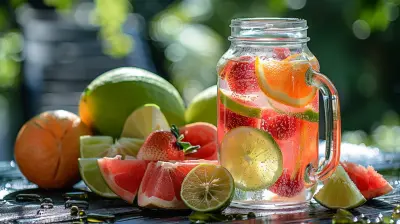The Importance of Protein in Your Weight Loss Diet
20 June 2025
So, you're diving headfirst into your weight loss journey, huh? You've cut the sugar, ditched the soda, maybe even started jogging around the block (or at least walked past the gym). But there's just this one word that keeps popping up everywhere you turn — protein.
Whether it's in your friend's new smoothie obsession or stamped on every “healthy” snack at the grocery store, protein gets thrown around like it's the holy grail. But is it all hype? Not even close. Let's break down why protein isn't just nice to have, it's the MVP in your weight loss diet.
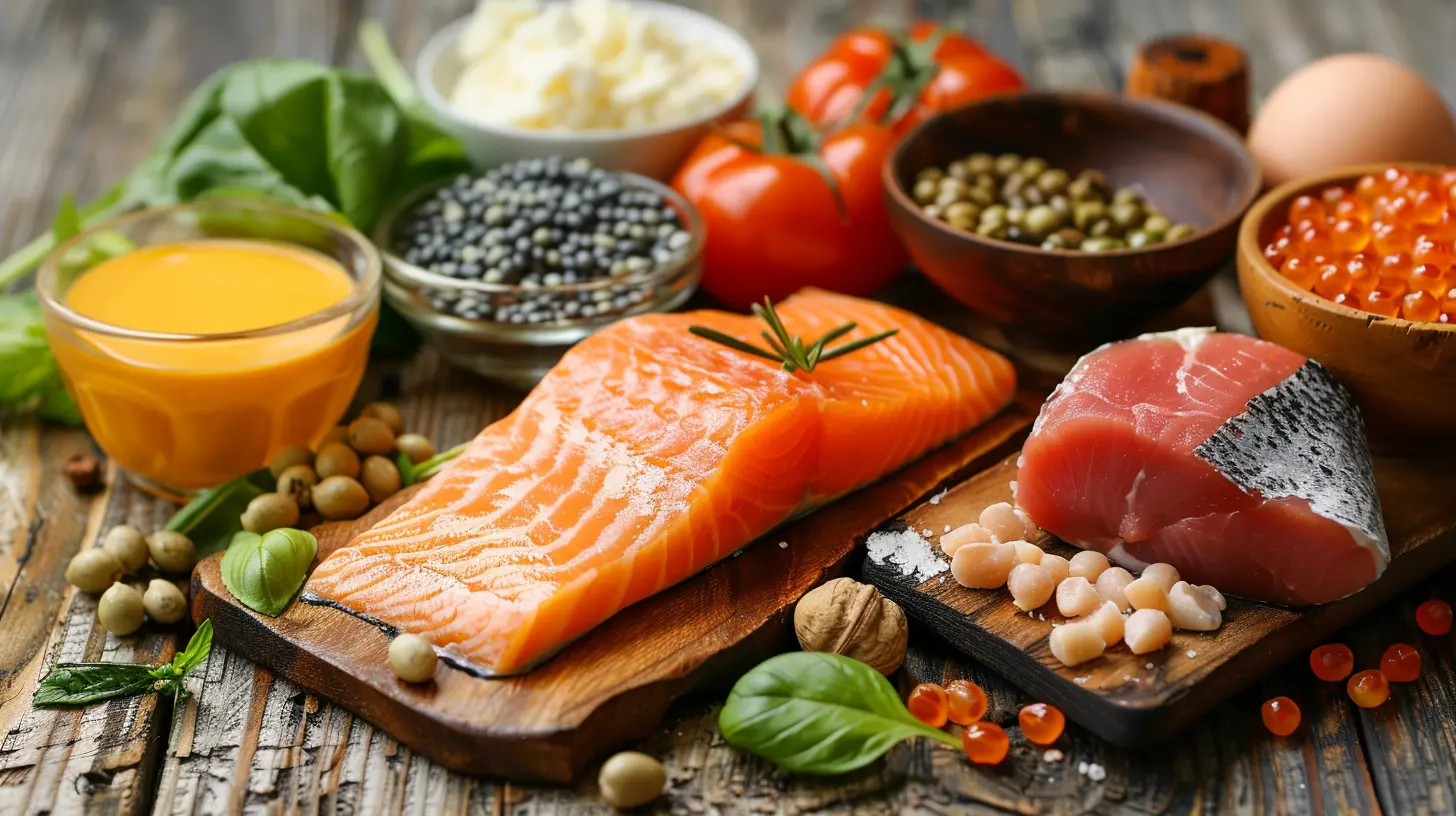
What’s The Big Deal With Protein Anyway?
Picture protein as your body's trusty construction crew. It's building and repairing muscles, keeping your immune system strong, and helping your body run like a well-oiled machine. But when it comes to weight loss — that's where protein really flexes.Unlike carbs and fat, protein keeps you full, helps you burn more calories, and saves your hard-earned muscle from disappearing along with the fat.
So, while that bowl of sugary cereal might leave you hungry by 10 am, a protein-packed breakfast? You’ll feel like a well-fed superhero all the way till lunch. 💪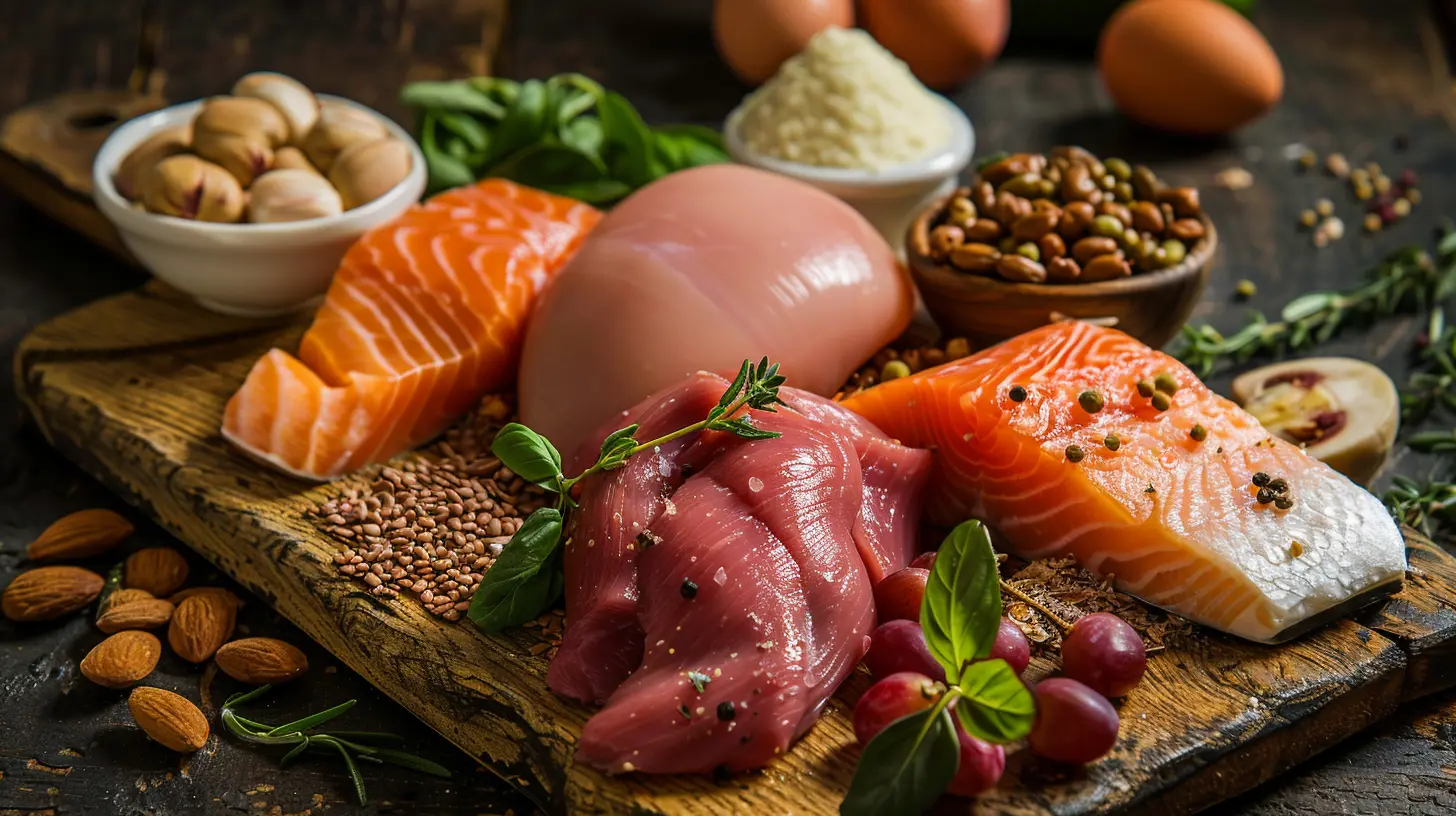
How Protein Helps You Lose Weight (Without Losing Your Mind)
Let’s be real: losing weight isn’t exactly a walk in the park. There's hunger, mood swings, and the occasional tantrum when someone eats the last slice of pizza. But adding more protein to your diet might just make it a little easier.Here’s why:
1. Protein Helps You Feel Full Longer
Ever feel like you’re always hungry when trying to eat “healthy”? Yup, that’s your body shouting for more. Foods high in protein take longer to digest, which means they keep you satisfied way longer than carbs or fats.No more sneaky late-night trips to the fridge. (Okay, maybe fewer trips.)
2. Boosts Your Metabolism
Guess what? Your body actually burns calories just trying to digest food — it’s called the Thermic Effect of Food (TEF). And protein has the highest TEF of all the macronutrients.In simple terms: eating protein = your body working harder = burning more calories even while chillin’ on the couch.
3. Saves Your Muscle While Losing Fat
Here’s the thing: when you lose weight, you’re not just losing fat — you could also lose muscle. And muscle is your body's calorie-burning furnace. So less muscle = fewer calories burned at rest.But when you eat enough protein, it tells your body, “Hey, keep the muscle — we still need that!” And trust me, you’ll want that muscle.
4. Helps Curb Cravings and Late-Night Snacking
If you’ve ever found yourself elbow-deep in a bag of chips late at night, you’re not alone. Cravings are real — and they are vicious. But people who include more protein in their diet tend to experience fewer cravings and are less likely to indulge in late-night snacking.Why? Protein helps regulate your hunger hormones — particularly one called ghrelin that’s responsible for making you feel hungry. Eat more protein, ghrelin chills out, and you stop feeling like a human vacuum cleaner.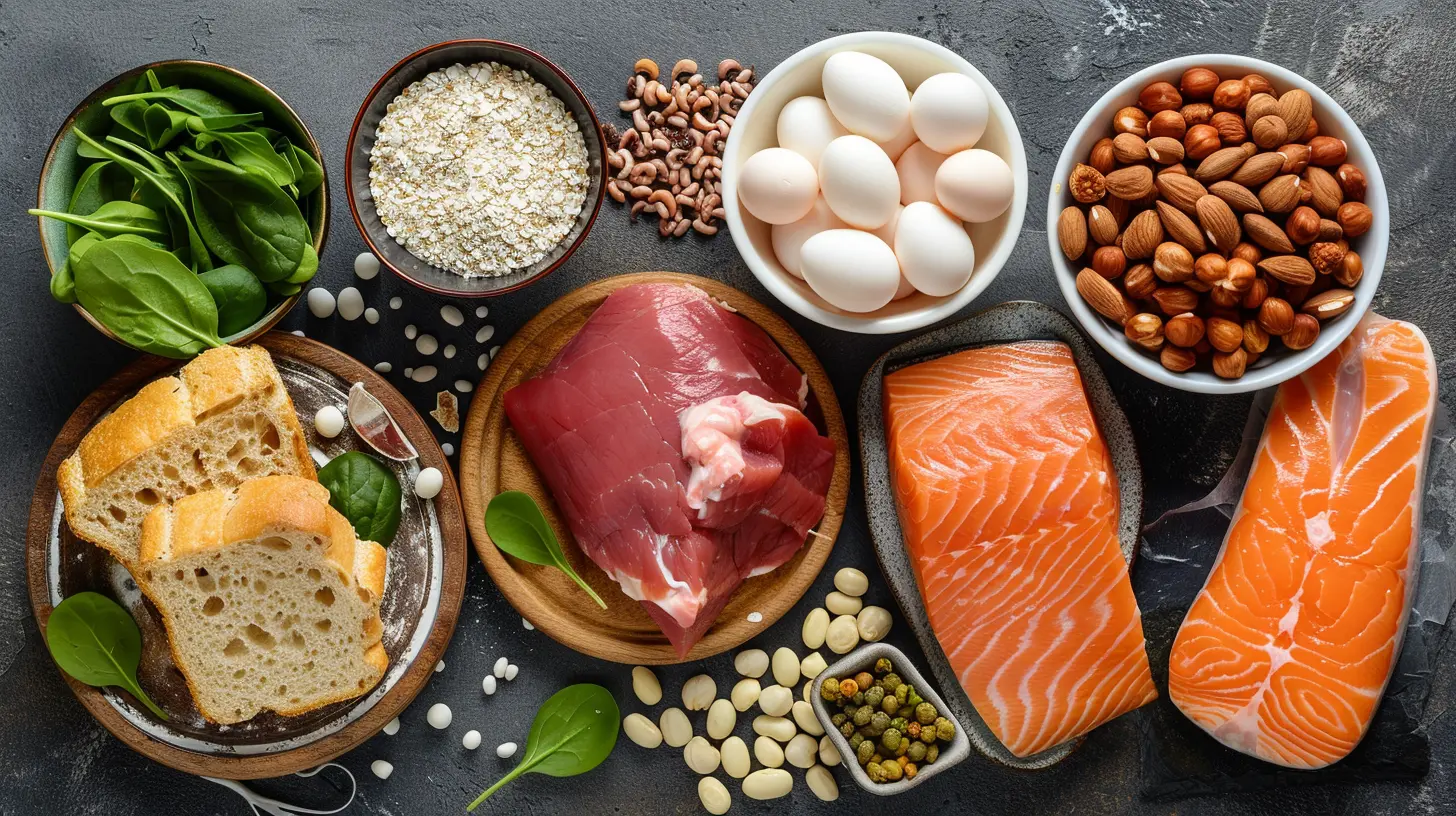
How Much Protein Do You Actually Need?
Great question. The general recommendation for the “average” sedentary person is about 0.8 grams per kilogram of body weight. But if you’re trying to lose weight? Or build some lean muscle? You’ll want more.Aim for anywhere between 1.2 to 2.2 grams per kilogram of your body weight — depending on your activity levels, goals, and body composition.
For simplicity’s sake: if you weigh 150 pounds (about 68 kg), your daily protein goal could be anywhere from 80 to 150 grams.
Yeah, that’s a lot of chicken. But don’t worry — we’ve got more options coming.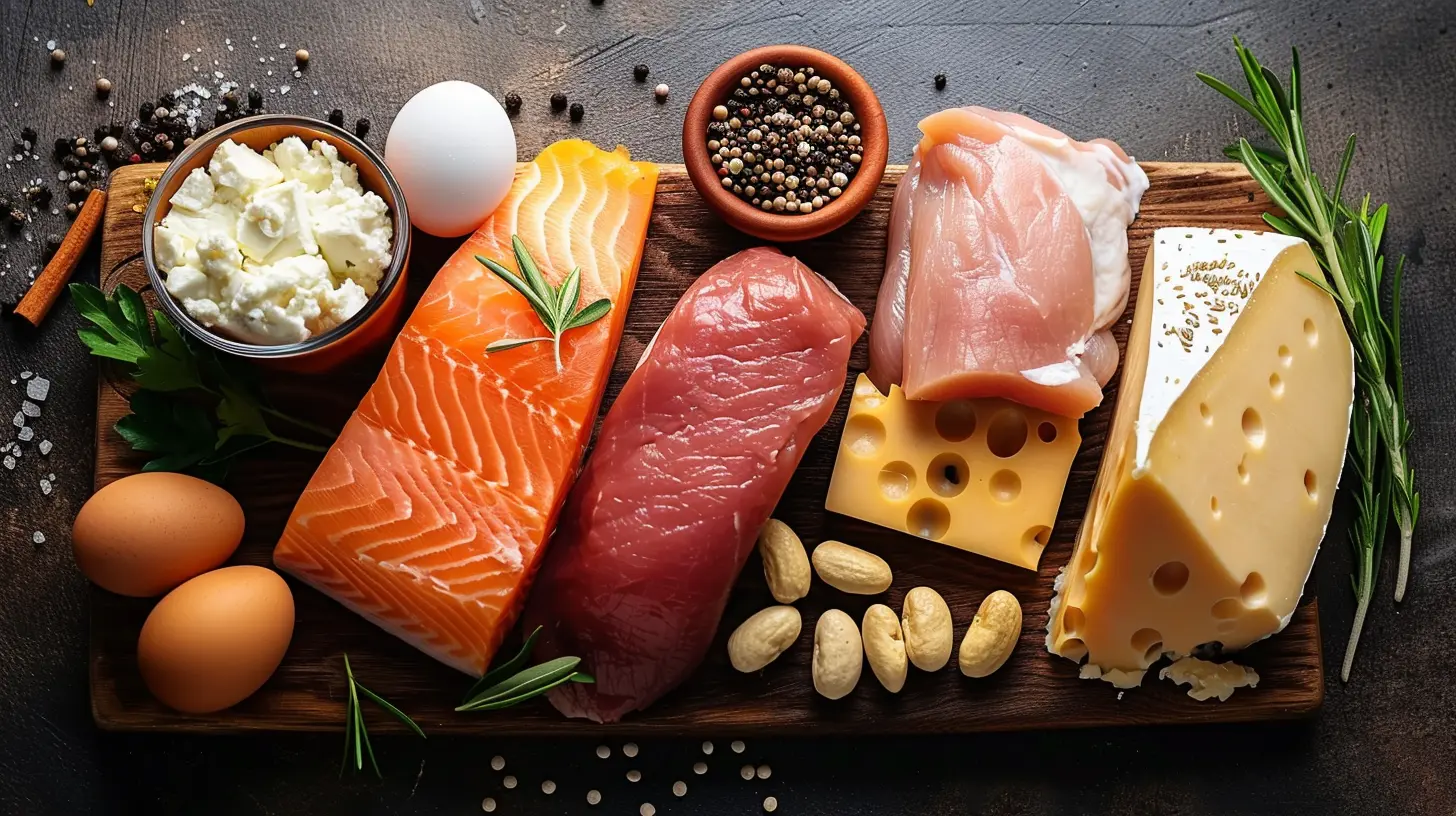
Best Protein Sources for Weight Loss
Not all protein is created equal. Some come with extra benefits, while others come with a side of saturated fat and regret.Here’s a list of fantastic (and tasty) protein sources to keep in your kitchen:
🥩 Animal-Based Proteins
- Chicken breast – The go-to lean muscle builder.- Turkey – Lean, satisfying, and perfect for meal prep.
- Eggs – Budget-friendly and egg-cellent (sorry, had to).
- Greek yogurt – High in protein, low in sugar (if you pick the right one).
- Salmon – Packed with protein and heart-healthy omega-3s.
- Cottage cheese – Basically a protein-packed cheese party.
🌱 Plant-Based Proteins
- Lentils – Fiber-rich too, so your gut will thank you.- Chickpeas – Hello, hummus!
- Tofu and Tempeh – Excellent for vegetarians and meat-lovers alike.
- Quinoa – A complete protein, surprisingly versatile.
- Edamame – Sneaky little green soybeans with muscle-making magic.
💪 Protein Supplements (When You Need a Boost)
- Whey protein – Quick-digesting and effective.- Plant-based powders – Pea, hemp, rice — a great option for vegans!
Tip: Supplements are handy, but they shouldn’t replace actual meals. Real food always wins.
Protein Timing: When Should You Eat It?
Alright, you’re on board with eating more protein — but when’s the best time to do it?Breakfast, Lunch, and Dinner... and Maybe a Snack
Instead of shoving all your protein into one massive dinner, try spreading it out throughout the day. Aim to get some at every meal — that way you stay fuller longer, keep your metabolism humming, and give your muscles a steady stream of building blocks.Breakfast is especially crucial. A protein-rich breakfast can reduce snacking through the entire day. So maybe skip the bagel and grab some eggs or a protein smoothie instead.
Common Protein Myths (Let’s Bust ‘Em)
Let’s clear up some protein confusion once and for all.❌ Myth #1: Too Much Protein Will Make You “Bulky”
Nope. Gaining bulky muscle (like bodybuilders) doesn’t just happen overnight. It takes intense weight training, a calorie surplus, and time. Lots of time.Adding more protein to your diet while cutting calories? That’s your ticket to becoming lean, not “Hulk smash” big.
❌ Myth #2: Only Meat Has Protein
What about all those plant-based superheroes out there? Lentils, beans, nuts, seeds, tofu — all packed with protein. No meat necessary.❌ Myth #3: Protein is Hard on Your Kidneys
Unless you have a pre-existing kidney condition, eating more protein isn’t going to wreck your kidneys. Your body knows what it’s doing — trust it.Quick Tips to Sneak Protein Into Your Day
Adding protein to your meals doesn’t have to mean eating steak at every sitting. These little hacks can help boost your intake — without going overboard:- Add Greek yogurt to smoothies instead of milk.
- Sprinkle chia or hemp seeds onto oatmeal, salads, or yogurt.
- Keep boiled eggs or turkey slices as grab-and-go snacks.
- Swap out regular pasta for lentil or chickpea pasta.
- Mix protein powder into your pancake batter (yes, for real!).
The Bottom Line: Protein Is the Secret Sauce to Fat Loss
Let’s be honest — there’s no magic pill for weight loss (if only, right?). But protein? It’s about as close as it gets. From keeping cravings at bay to burning extra calories and protecting your muscles — it’s a must-have in your weight loss playbook.Whether you’re keto, vegan, paleo, or just eating whatever doesn’t scream back at you, there’s always a way to prioritize protein.
So next time you meal prep or order takeout, just ask yourself: where’s the protein?
Because when it comes to shedding pounds and feeling good, protein’s not just part of the plan — it’s the star of the show. 🌟
Final Thoughts
Ready to make protein your weight loss partner-in-crime? Start small. Add a little bit more to each meal. Choose high-quality, natural sources whenever possible. And stay consistent. Before you know it, you’ll feel stronger, fuller, and more in control of your cravings.Weight loss doesn’t have to be miserable. With protein on your side, you’re setting yourself up for real, sustainable success — and maybe even a few flex-worthy selfies along the way.
all images in this post were generated using AI tools
Category:
Weight LossAuthor:

Laurie Barlow
Discussion
rate this article
1 comments
Lorna Alexander
Protein is the VIP of your weight loss journey—don’t skip the guest list! Ditch the carbs, embrace the gains, and watch the scale befriend you. Let’s flex those muscles!
June 23, 2025 at 3:18 PM

Laurie Barlow
Absolutely! Prioritizing protein can boost metabolism, preserve muscle, and keep you feeling full—essential for effective weight loss. Let's make it a staple in our diets!
